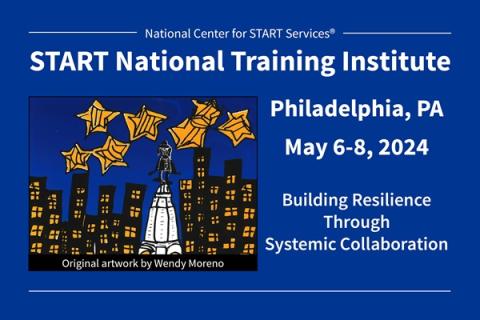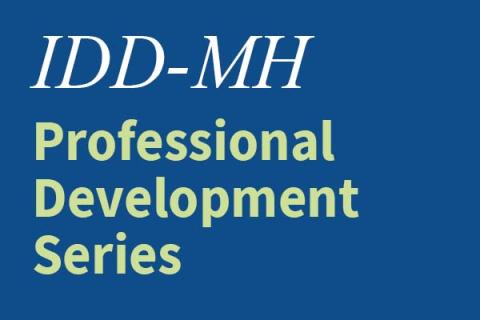
The National Center for START Services® Training Department oversees the development, coordination, and delivery of all training and professional development offered to the national START Network and Network stakeholders. The goals of the Training Department are:
- Prepare leaders in the field of IDD-MH through innovative learning experiences, interdisciplinary teaching models, and programs of study that incorporate universal design principles, include the perspective and voice of people with lived experience of IDD-MH, and employ varied instructional methods and formats.
- Offer professional development that is evidence-based, progressive, and culturally relevant.
- Expand issues related to IDD-MH, community engagement, and research into coursework and learning opportunities beyond the traditional schools of education and health and human services at UNH and the curriculum programs offered by our UCEDD partners.
Training
- Focuses on providing skills and tools needed to perform functions of role
- Sets guidelines to follow
- To develop competencies of START team members
Professional Development
- Focuses on improving existing skills & capabilities
- Focuses more on self-learning process & progress of the professional
- Emphasis on building a successful career/practice
- Growth-oriented
- THINK: Continuing Education
Training Programs
Suicide Screening for People with ASD-IDD/MH: Training for 988 Lifeline Counselors
This online, asynchronous (on-demand) training enables 988 Suicide & Crisis Lifeline screeners/counselors to provide improved support and assistance to people with intellectual/developmental disabilities (including Autism Spectrum Disorder, ASD) and mental health needs (hereafter referred to as ASD-IDD/MH) who contact the Lifeline seeking help.
At the conclusion of the training , participants will be able to:
- Describe at least five (5) key factors related to the prevalence, signs & symptoms of suicidality amongst people with ASD-IDD
- Utilize skills and approaches outlined within presentations to effectively engage with people with ASD-IDD who contact the 988 lifeline
- Identify and describe suicide screening tools that can be utilized when engaging with people with ASD-IDD



